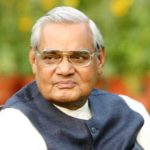IDR Blog
China: Persists in Imposing Adversarial Template in Masood Azhar Case
China brazenly and wilfully reinforced Indian perceptions that its policies and actions in intent and deed are decidedly those of a diehard military opponent of India and Indian national security interests by blocking yesterday for the fourth time in United Nations a move to designate Pakistan-based and supported JeM terrorist chief Masood Azhar as “Global Terrorist”.
China by doing so has doubly rubbed salt in India’s wounds arising from Pakistan Army’s use of Jihadi terrorism outfits to target Indian security forces as part of its asymmetric warfare against India. By blocking Pakistan’s state-sponsored terrorism being named and shamed in UN China has brought ridiculous contempt on itself of double -standards on terrorism.
China is obligated under the charter of the Shanghai Cooperation Organisation to condemn and oppose terrorism. By shielding Pakistan at UN it is well-nigh clear that it is just rhetoric. India should be regretting that it joined the SCO when China as the leading member of SCO fails glaringly to uphold what it professes on terrorism.
China by blocking India’s efforts with global support to designate Masood Azhar as “Global Terrorist’ logically is imposing adversarial templates on India and reinforcing Indian public perceptions of a potent not only the China Threat but also a joint China-Pakistan Threat targeting India which many in India’s strategic community decry as overblown. India must note this trend of China to nurture a growing China-apologist lobby in India’s strategic community and some top Indian media personalities, as it detracts India’s national effort of war-preparedness against such joint threats.
China has a right to choose its friends, strategic partners, if any, other than Pakistan and North Korea, but China staking claim to be a responsible Major Power at the global level and as a Permanent Member of the UN Security Council has an obligation not to side with a nation such as Pakistan perceptively bordering to qualify as a “Terrorist State” exporting Jihadi terrorism to all its neighbours.
Inherent in China’s fourth bid in the United Nations in March 2019 to block designating Pak-based Jihadi terror chief as “Global Terrorist” is that by doing so China itself becomes complicit with Pakistan Army in nurturing Jihadi terrorism militias which Pakistan Army uses to inflict incalculable damage on India’s National Security fabric.
Highlighted in my last week’s SAAG Paper on China was that China has failed to walk the talk when Chinese Prime Minister was extolling the Wuhan Spirit nearing its first anniversary of the Informal Summit between the Chinese President and Indian PM Modi last year.
By blocking India’s bid yesterday in the UN to designate Pak Terrorist Chief Masood Azhar as “Global Terrorist” in a UN Resolution sponsored by France, United States and United Kingdom starkly indicates that China has no respect or consideration for international opinion and where it comes to protect China’s geopolitical interests China can brazenly defy both with impunity. This is a continuation of its national propensities as glaringly visible by China’s aggression in the South China Sea.
India’s leaders and its policy establishment should now well recognise that the China Threat to India is all -encompassing and not confined to the border dispute only. The main theme of my Book: ’China-India Military Confrontation: 21st Century Perspectives’ (2015 was that “China-India military confrontation in the High Himalayas a consequence of China’s military occupation of Tibet in 1950 and the unprovoked Chinese invasion of India in 1962, has graduated from a boundary dispute to an intense geopolitical tussle in Asia’s geopolitical rivalries”.
India therefore today in 2019 has the serious challenge of how to deal with China in the above context where to gain advantage against India militarily, China does not wink twice to be not only be permissive on Pakistan Army’s use of state-sponsored terrorism against India but also brazenly shields Pakistan from international censure on the same issue at the United Nations.
The subject is vast and deserves a separate detailed analysis. Suffice it to assert that analytically this calls for resetting India’s China Policy predicated on false assumptions that China would is genuinely serious about improving friendly relations with India. In the run-up to Wuhan Informal Summit I pleaded in my writings that Wuhan was only a political tactical expedient o ensure Modi’s presence at the Beijing Summit that was to follow. The foreign policy establishment was wrong in advising PM Modi to participate in Wuhan Informal Summit.
Indian policy establishment needs to recognise that economic allures of burgeoning one-sided trade with China that will change China’s animosity spots against India. It is strong geopolitical moves that would do so and these should optically be visible to China.
Concluding, it needs to be strongly emphasised that India’s political leadership nor India’s foreign policy establishment should ever DE-EMPHASISE or DOWNPLAY the Potent China Threat to Indian Security, If any further proof is required China for the fourth time in the United Nations provided unambiguous credentials of its adversarial policy stances against India—in short, China is a ‘Threat to Indian National Security Interests’.




